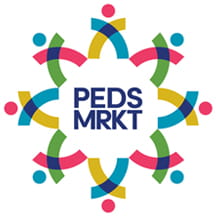In a recent Children's Hospital Association webinar, experts from digital health care leader AVIA Health explored early success stories of artificial intelligence (AI) applications across health care.
Here are the most important takeaways.
Guiding principles
As children’s hospitals embark on specific use cases of AI, they should:
- Establish a framework and governance structure to drive AI deployment and use.
- Use AI to address business needs as part of a full toolkit and holistic organizational approach.
- Design a cradle-to-grave process to manage AI deployment and use.
Market overview
AI health care solutions span from simple to complex, from practical to visionary. Current and near-term AI solutions are growing rapidly in these areas:
- Clinical documentation.
- Clinical AI.
- Patient engagement and communications.
- Corporate services.
- Operations.
9 real-life use cases
1. Internal chat bot
An internal chat bot provides secure access to a ChatGPT-like experience for general use internally at Providence.
2. Error detection
An application at Boston Children's Hospital identifies and alerts critical findings in provider notes and reports, as well as highlights potential medical errors in medication orders.
3. Readmission predictions
An AI model at Children’s Mercy Kansas City predicts which patients are most likely to be readmitted within 30 days, allowing the care team to customize interventions.
4. Provider documentation
Northwestern Medicine is using an AI tool that generates clinical assessment notes.
5. Cough analysis
UCSF Benioff Children's Hospitals uses a mobile app to analyze coughs in real-time and record cough patterns using its AI algorithm. Read more.
6. Code auditing
Boston Children’s Hospital uses an AI-powered coding auditing platform to conduct secondary reviews of coded claims and documentation data, which identifies opportunities for DRG optimization.
7. No-show predictions
Children’s Mercy Kansas City uses a machine learning model to predict who will miss appointments, allowing clinicians to intervene to improve patient attendance.
8. Genetic syndrome predictions
A non-invasive AI tech solution at Children’s National Hospital assesses the structure of a patient’s face for specific feature attributes associated with genetic disorders.
9. Identifying malnutrition
Using a decade of data and modeling, an AI program at Phoenix Children’s automatically identifies malnutrition in patients with up to 80% accuracy. Read more.





